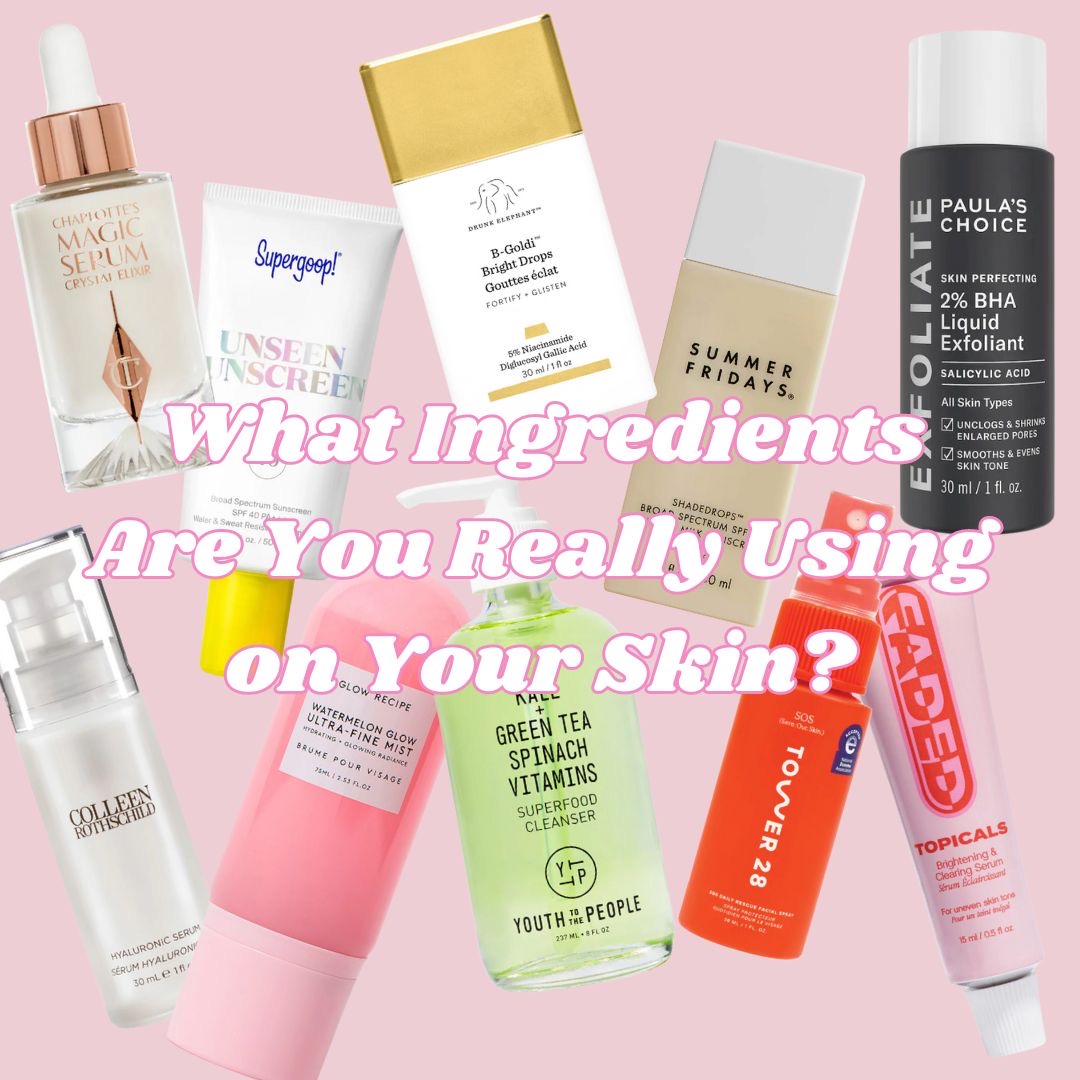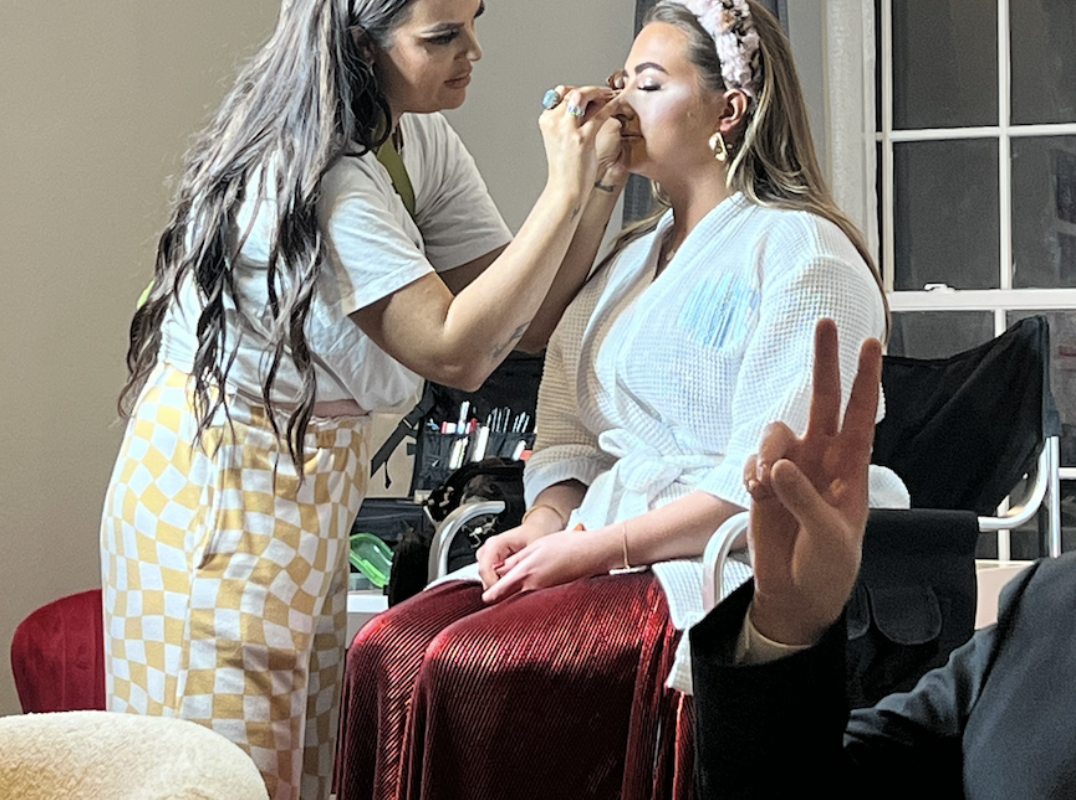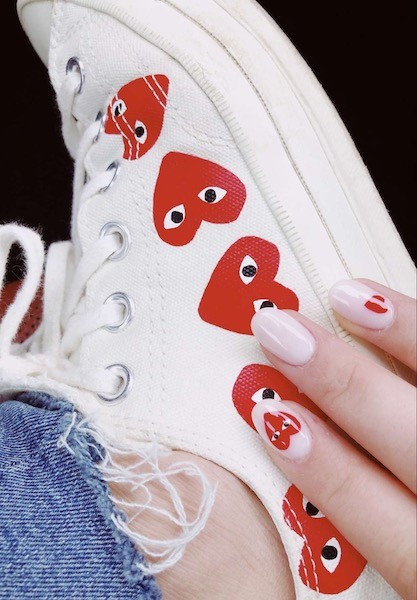By Rees Sinnott
Skincare ingredients can be quite overwhelming, and I often feel like I never truly know what I’m putting on my face. There have been a countless number of times where I was shopping in stores like Sephora and Ulta, where I either couldn’t comprehend what I was buying or was too overwhelmed by the options to even make a purchase. I have invested in a number of products, mainly because of the popularity of skincare trends on social media. However, it can be expensive and a major dissapointment, when I don’t see any results.
Lauren Bray, a senior SMU student from Seattle, has always struggled with sensitive skin and recalls the feeling of shopping in these stores. “Whenever I’m at Sephora, specifically the one NorthPark is the one I end up going to, I’ll be in there for five, maybe 10 minutes and get completely overwhelmed with the sheer number of products,” said Bray.
Dealing with skin issues can be tough, especially since one’s skin is often the first feature someone notices about you. According to CNBC, the average American spends about $722 on skincare each year. Despite the amount of money we are willing to pour into our skin, we often lack clarity on whether or not the products we buy will work, or what the ingredients truly do for us.
If you find yourself just as confused as I am, here is a breakdown of a few of the top skincare ingredients and how they can improve your skin:
Ingredient Breakdown:
Hyaluronic Acid
Hyaluronic Acid is a crucial ingredient in skincare, and is featured in over 700 different products on Sephora’s website.
This acid is known for its ability to retain moisture and hydrate the skin. According to Alastin skincare, it can hold up to 1,000 times its weight in water, so it is one of the best hydrating ingredients you can use in your skincare regimen. Hyaluronic acid occurs naturally in our skin, but as we age, our bodies produce less and less of this ingredient.
Hyaluronic Acid not only retains moisture, but is also known for its anti-aging abilities, as it helps reduce fine lines and wrinkles. Hyaluronic Acid is gentle, making it a good choice for sensitive skin types, and can be mixed with almost any other ingredient in your skincare routine, so it is a super convenient addition to your routine.
Niacinamide
An ingredient that caught my eye was Niacinamide, as it seems to be one of the most prevalent ingredients I see when browsing the skincare aisle. There are over 50 products on the Sephora website that contain Niacinamide, so what does it do for your skin?
Niacinamide, also known as Vitamin B3, is a nutrient in many of the foods we eat and products we put on our skin. It is a water-soluble vitamin, but your body does not naturally produce it, so it must be supplemented through skincare products or dietary choices. This ingredient is found in many products, including serums, cleansers, and moisturizers.
There are so many different ways Niacinamide can benefit your skin. One of the most prominent uses is brightening your skin and promoting an even skin tone. It helps to support the skin barrier by reducing moisture loss, aiding the skin in self-protection. Some other uses include clearing the skin, reducing the appearance of pores, improving redness, and dimishing fine lines and wrinkles.
Niacinamide is safe for sensitive skin and works well with various other ingredients found in everyday products. Whether you choose to use it in the morning or night, Niacinamide an easy addition to your skincare routine.
AHAs
The next category of skincare ingredients that can be incorporated into your routine is AHAs, which are also known as alpha-hydroxy-acids. This group includes many acids that you may already be familiar with, such as, glycolic, lactic, citric, and malic acids.
AHAs are chemical exfoliants, a super important step in building your skincare routine. Unlike a physical exfoliant, which contains small abrasive particles like the minerals you feel in scrubs, a chemical exfoliant works to break down dead skin cells.
Glycolic Acid is the most popular, and the strongest, AHA that can be found in many popular skincare products. It is derived from sugarcane and is the smallest AHA, allowing it to get very deep into your skin. It helps with hyperpigmentation, wrinkles, brightening, and firmness.
Another popular AHA is lactic acid, which is derived from milk. It is a gentler option that exfoliates the top layer of the skin. It is very good at hydrating the skin and is an excellent option for those who have a more sensitive skin type.
Be sure to limit exfoliating to one product per day as over-exfoliating is possible. Additionally, it can take awhile for your skin to adjust to AHAs, so it is important to gradually introduce these into your routine.
BHAs
BHAs, also called Beta Hydroxy acids, are another common category of acids in popular skincare products. These function as another type of chemical exfoliants, with salicylic acid being the most commonly recognized.
Salicylic acid is a versatile ingredient found in a wide range of skincare products, including toners, moisturizers, cleansers, and spot treatments. It is most prominently used for acne-prone skin, as it can effectively penetrate pores and clear skin.
Other benefits of using BHAs include reducing oiliness in the skin, smoothing skin texture, helping shrink pores and reducing hyperpigmentation.
Like AHAs, it is important to gradually introduce these acids your routine because it can be overwhelming for your skin all at once. Also, if you plan to use both AHA and BHA products in your routine, it is important to alternate days for each exfoliant.
With the abundance of products on the market, and the rise of TikTok skincare influencers promoting different products, choosing what products to add to your routine can be a daunting task. I hope you this information has given you a better understanding of the benefits of these ingredients, making you shopping process easier and ultimately helping you on your journey to healthier, glowing skin.
Graphic by Rees Sinnott







